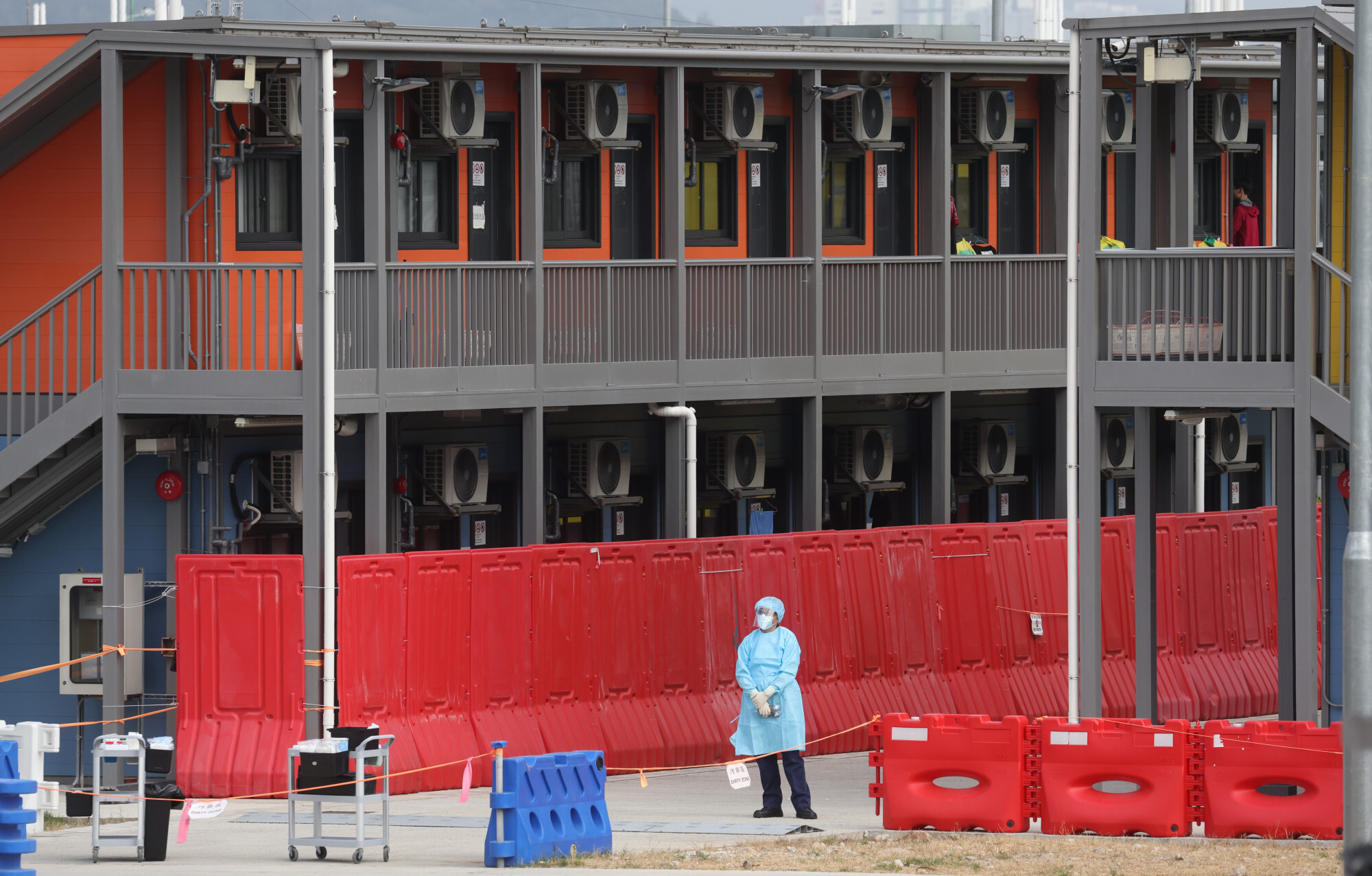
Coronavirus: Hong Kong pandemic adviser calls for end to cargo aircrew quarantine ‘loophole’ after Cathay Pacific pilot’s Omicron case
- Two-hour window for ‘essential’ travel in community risks potential outbreak, says Professor David Hui, as it brings Hongkongers face to face with new, more transmissible variant
- But when questioned on the subject, health secretary reveals no plan in the works to change policy; city, meanwhile, adds eight new Covid-19 cases, all imported
Health experts have called on the Hong Kong government to minimise contact between aircrew and the community at all costs, pushing for cockpit staff on cargo flights to undergo mandatory Covid-19 quarantine before returning to their families, while those eligible for home isolation should be prevented from going out to buy essentials.
But officials have so far given no indication they intend to further restrict the movement of arriving pilots.
Professor David Hui Shu-cheong of Chinese University on Sunday echoed other health experts in decrying a “loophole” that allowed local aircrew to not only self-isolate at home but venture into the community for two hours a day, risking a potential outbreak of the highly transmissible variant.
“Since currently there are not many local crew members, could the Department of Health consider sending officers to their homes to take testing samples for them?” Hui asked on a local television programme.
Coronavirus screenings, along with trips to get food or other essentials, are two of the reasons cargo aircrew can leave their homes under existing policy.
The 36-year-old Cathay pilot, who arrived from Anchorage in the United States on Monday, left his residence to do just that on more than one occasion before testing positive three days after arrival.
His case triggered a lockdown and mandatory testing at the Yau Ma Tei block of flats where he lives on Thursday. No related cases were uncovered.
Health officials confirmed eight more Covid-19 infections on Sunday – all imported. Seven of the arrivals were found to be carrying mutant strains, while one was still awaiting test results. Fewer than 10 people tested preliminary-positive.
The latest cases brought the city’s tally of confirmed infections to 12,527, with 213 related deaths.
Asked if the government planned to tighten quarantine rules for cargo aircrew, Secretary for Food and Health Sophia Chan Siu-chee would say only that authorities had been in contact with airlines to ensure there would be no similar cases in the future.
But respiratory medicine expert Dr Leung Chi-chiu, who has been among those calling for an end to the quarantine exemption, told the Post that self-isolating at home was simply not good enough.
“The worker will still touch the public facilities [in their buildings] while at home,” Leung said. “There could also be a possibility of community transmission, depending on the air-circulation level or drainage system in the building.”
Leung stressed that the recent Cathay pilot case was not the first time an aircrew member had tested positive for Covid-19 after spending time in the community, saying the government should take a thorough approach when adjusting the quarantine rules.
In addition, infectious disease specialist Dr Wilson Lam said, allowing home isolation put aircrew family members at risk, something even wearing masks inside the home could not fully ameliorate given Omicron’s transmission rate.
While conceding that requiring “all cargo workers go to a quarantine camp” was unfeasible given supply chain concerns, Lam suggested only those who live alone be allowed to isolate at home.
“They also shouldn’t be allowed to leave their homes,” he added. “Airlines can do the grocery shopping for them or provide any help if needed.”
Britain, meanwhile, has seen its number of Omicron cases soar in the past week, but the Hong Kong government has yet to move it into its new tier of destinations with enhanced quarantine measures.
Arrivals from countries in that segment – currently only the United States and 12 African nations – must spend the first week of their 21 days of quarantine at the government’s Penny’s Bay facility.
Hui said he believed the government was reluctant to add Britain to their ranks as the Lantau Island-based isolation centre simply could not accommodate the sheer number of arrivals.
Swift action was still necessary, he added, suggesting hotels be tapped to fill the gap.
“The government should identify one or two designated quarantine hotels for those arrivals, and such hotels must maintain a high level of air circulation or install air purifiers,” he said.

Amid Omicron fears, the Hong Kong government on Sunday added Palestine and Ukraine to its high-risk Group A list of specified places, with the new measures to kick in from Wednesday.
The city has placed a total of 73 places in Group A since the WHO designated Omicron as a variant of concern on November 26. There are now 98 places on Hong Kong’s Group A list.
The health expert was also asked if the Omicron variant would derail Hong Kong’s long-awaited border reopening with mainland China, as neighbouring Guangdong province was also facing a potential outbreak.
Hui said it all depended on the next 14 days. “If there are no outbreaks [in Hong Kong or Guangdong], reopening of the border can be continued.”
Alfred Sit Wing-hang, secretary for innovation and technology, on Sunday said Hong Kong had already met the requirements necessary to start the quarantine-free travel scheme, with the launch date now in the hands of Beijing.
“It depends on the central government to decide the actual day for reopening the border,” Sit told a radio programme. “I hope that there will be good news soon.”
As of noon on Sunday, about 593,000 people had registered for the city’s health code, a Covid-19 risk indication mechanism required by mainland officials as a prerequisite for the border reopening. The first phase of quarantine-free travel covers only Guangdong.

